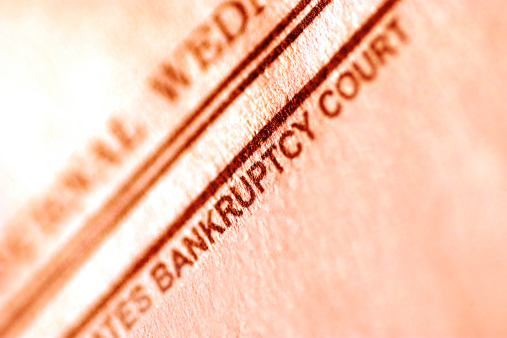Can I file for bankruptcy if a debt collection agency is chasing me?
 It’s important to consider all your options before opting for bankruptcy. David Pomeroy
and Rachel Maddocks, of Ashfords, explain.
It’s important to consider all your options before opting for bankruptcy. David Pomeroy
and Rachel Maddocks, of Ashfords, explain.
The simple answer to this question is yes, provided that you meet the statutory requirements.
Since 6 April 2016, the process of applying for bankruptcy has become much easier. Instead of presenting a petition at court, you can now make an application for bankruptcy through the Insolvency Service's online portal, Online Debt Solutions.
There is no court hearing, as an adjudicator will deal with your application on paper. They will acknowledge receipt of your application and apply to the chief land registrar for it to be registered as a pending action. The adjudicator will then deal with your application within 28 days (unless a request for further information is made).
However, it should be noted that although making an application for your own bankruptcy has become much simpler, it is still a formal, legal process that should not be undertaken lightly.
Statutory requirements
The first thing to check is that you meet the statutory requirements for a debtor's bankruptcy application.
Are you definitely unable to repay your debts?
In your application, you will need to provide the adjudicator with details of your assets and liabilities, income and outgoings, and you will only be made bankrupt if it is clear from these details that you are insolvent.
Is there a bankruptcy petition currently pending against you?
If so, you will not be able to apply for your own bankruptcy. In fact, you wouldn’t want to in this situation, as if there is a creditor's petition pending, you can save the costs of making your own application.
Does the adjudicator have jurisdiction to make you bankrupt?
If you live in England and Wales, then this requirement is easily met. Alternatively, if you resided in or carried on business in England and Wales at any time in the past three years before the date of your application, then the adjudicator will have jurisdiction to make you bankrupt.
Has a bankruptcy order already been made in respect of the debt that is the subject of your application?
This is unlikely, but if so, you will not be able to make yourself bankrupt based on this same debt.
What are the advantages of bankruptcy?
There are certain advantages to bankruptcy, the most obvious being that debt collectors and creditors will no longer be able to pursue you. Your trustee in bankruptcy will take over the administration of your debts, thereby removing any stress that may be experienced in trying to manage claims coming from numerous different creditors. The other main advantage is that once you are discharged from bankruptcy, which usually happens automatically after a year, most (but not all) debts are written off.
What are the disadvantages of bankruptcy?
The disadvantages of bankruptcy are numerous. The first is that filing for bankruptcy itself is not a cheap process, as a fee of £680 is payable on application, although this can be paid in installments. If you own or jointly own a property, it is highly likely that it will be sold. The trustee will also sell any other assets of value, which could include investments that you own, such as insurance policies (but not most pensions). The expenses of bankruptcy can be high, and will also need to be met through the sale of your assets.
Once discharged, although some debts are released, there are certain types of debt that can’t be written off, the most notable being debts to secured creditors. Being discharged also does not mean that you will get back any assets that have not been sold, which will continue to be administered by your trustee.
As a bankrupt, you are unable to be a company director, hold public office, or practice certain professions. Bankruptcy is in fact a surprisingly public process, as the names of those made bankrupt are made available on the Insolvency Service website and are published in The Gazette.
You are able to carry out business as a sole trader while bankrupt, but you will have to trade under your own name, or under the name that you traded under when you were made bankrupt. The only alternative is to disclose to all related parties the fact of your bankruptcy, which is probably unrealistic.
You will also have to disclose your status as a bankrupt if you want to get credit over £500, and even if you are automatically discharged from bankruptcy after a year, a note of your bankruptcy will remain on your credit file for six years after the date that the bankruptcy order was made, thus affecting your ability to obtain credit for quite some time.
On balance
Bankruptcy should be a last resort, not the first port-of-call for managing debt. If you find yourself being chased by a debt collection agency and are unable to make payment, you should seek advice from an expert immediately. Other options are available, such as a debt relief order, IVA, or negotiating a payment installment plan.
About the author
This article was written by partner and head of restructuring and insolvency at Ashfords, David Pomeroy, and trainee solicitor, Rachel Maddocks. You can follow Ashfords @Ashfords_Law.
